Business Standard
If the Union Budget were a human being it would score high on body language. It does not say anything that will cause a ripple. Neither does it make hard promises, which may not be possible to deliver. It avers, through nod and wink, what it wants to say and this greatly enhances the comfort level all round. Take the case of the fiscal deficit. The attempt to tame it has received invaluable help from the auctioning of spectrum for 3G services. No doubt, the return of high growth and advent of inflation (it enhances the denominator in the ratio) have helped.
If the Union Budget were a human being...
Image: Finance Minister Pranab Mukherjee.Photographs: Reuters.
The circle has been squared by making an unrealistic projection of a very modest rise in expenditure. The effort to keep expenditure under control will be attacked from two directions.
If the Union Budget were a human being...
Image: Need for inclusive growth.The other attack will be the pressure on expenditure from the inclusive agenda visualised for various social sectors. The fertiliser subsidy bill will go up before direct cash transfers will be able to bring it down. A vastly enhanced food subsidy bill will be a certainty once food security comes into play, in no matter how staggered a pace.
If the Union Budget were a human being...
Image: Finance Minister Pranab Mukherjee.Like any accomplished communications exercise, which a good Budget speech is, the present one knows where to promise, where to appear to promise and where to completely sidestep the issue.
If the Union Budget were a human being...
Image: Budget for inclusive growth.A Budget worth its salt would have made some significant announcement to promote FDI (opening the gates for investment in retail was widely anticipated) and simultaneously put up road blocks in the way of portfolio investment.
If the Union Budget were a human being...
Image: Dollar notes.Photographs: Reuters.
The other attack will be the pressure on expenditure from the inclusive agenda visualised for various social sectors. The fertiliser subsidy bill will go up before direct cash transfers will be able to bring it down. A vastly enhanced food subsidy bill will be a certainty once food security comes into play, in no matter how staggered a pace.
If the Union Budget were a human being...
Image: Finance Minister Pranab Mukherjee.Photographs: Reuters.
The primary inflationary push has come from high food prices and it is unlikely that the plethora of measures trotted out in the Budget will have any impact on them. Salvation on the food front can come only in two ways. One is to sharply raise food output this year itself.
This can be done if a major programme is chalked out with the states to raise productivity in the rainfed areas, first by better water management (rejuvenating tanks, check dams and building new ones) and second by offering the carrot of a major procurement drive in coarse grains....
If the Union Budget were a human being...
Image: Trade in agricultural commodities.Photographs: Reuters.
On this the Budget is at its classical best in making the right noise, urging the states to get rid of or reform the agricultural produce marking committees, which are both anti-farmer and anti-consumer.
The second inflationary push has come from the imported commodities front over which the government has no control. Oil prices may go down in the medium term but a steady inflationary pressure from them in the foreseeable future should be taken as given.
If the Union Budget were a human being...
Image: Finance Minister Pranab Mukherjee.So it does what it can, adopts the right body language by aligning fiscal policy with monetary policy to promote fiscal consolidation. (Body language because in reality expenditure control and fiscal consolidation are unlikely to take place.)
Through this it gains the approval of the vast majority of global commentators on economic policy and lives to fight another day - come up with the next Budget.

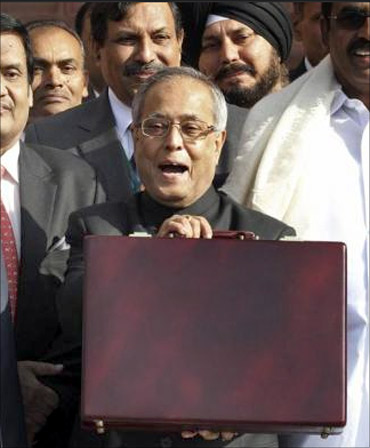

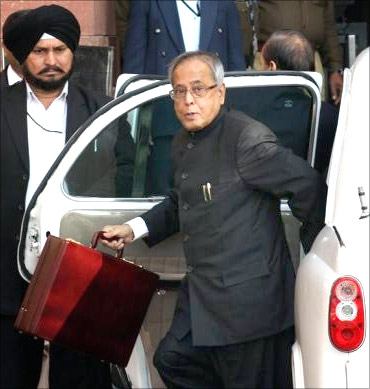
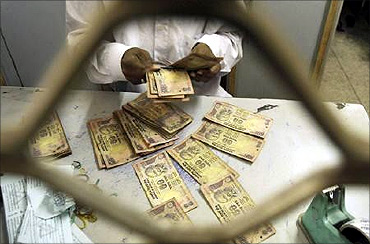
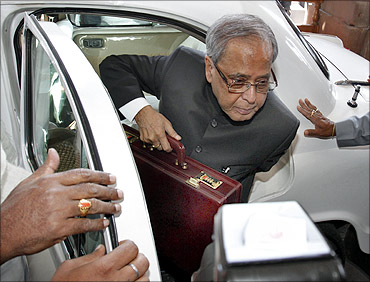
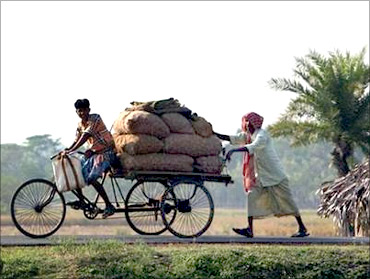
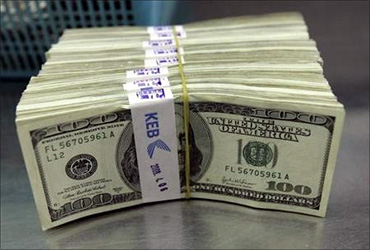
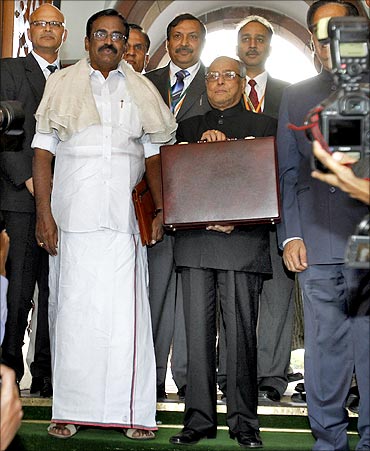

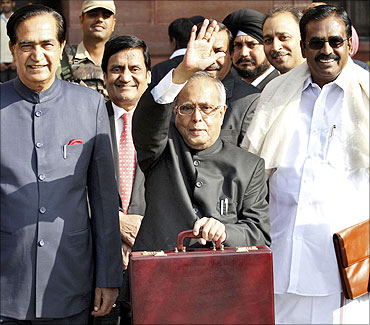

article